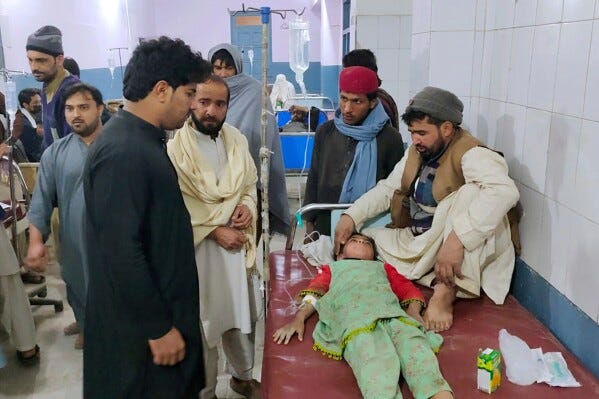Ramadan Tragedy: Bannu Mosque Collapse Claims 12 Lives
Explosions during evening prayers and iftar time lead to deadly mosque collapse in Bannu, Pakistan.
Guest Writer
In Bannu, a city in Pakistan’s Khyber Pakhtunkhwa province, the evening of March 4, 2025, began with the customary serenity of Ramadan. Families gathered to break their fasts, and the call to prayer filled the air, fostering a sense of peace and community. However, this tranquility was abruptly shattered by a series of devastating events that left the community in shock.
As residents settled for Iftar, the ground suddenly shook with the force of massive explosions. Plumes of thick, black smoke rose from the direction of the Bannu Cantonment, a heavily fortified area. Panic ensued as people frantically tried to contact loved ones and ensure the safety of their neighbors.
The explosions caused significant destruction beyond the initial blast site. The force of the blasts led to the collapse of nearby structures, including the roof of a mosque where worshippers had gathered for evening prayers. Rescue workers and community volunteers raced against time, sifting through rubble to save those trapped beneath. The air was filled with dust, smoke, and the anguished cries of those searching for their loved ones.
The local hospital soon became overwhelmed with casualties. Medical staff, many observing the fast themselves, worked tirelessly to tend to the injured. The corridors overflowed with the wounded and their families, echoing with prayers and sobs. Reports indicated that at least 12 civilians, including seven children, lost their lives, with many others injured.
Among the deceased was the mosque’s imam, a figure deeply respected in the community for his wisdom and compassion. His loss, especially during Ramadan, added to the profound grief enveloping Bannu. This sacred period, intended for reflection and unity, was now marred by violence and sorrow.
In the wake of the attack, a palpable sense of betrayal and anger permeated the community. Residents openly questioned the effectiveness of the security measures in place, especially given the strategic importance of the cantonment. Conversations among neighbors were filled with frustration and confusion: How could such a coordinated assault occur in a heavily guarded area? Where were the intelligence and preventive measures that should have protected them?
This incident was not isolated. Bannu had experienced multiple assaults in recent years, leading to a growing perception among locals that the authorities’ efforts to ensure security were inadequate. The recurring nature of these attacks eroded trust in both the security forces and government institutions, leaving residents feeling vulnerable and neglected.
As the community grappled with the aftermath, the collective grief was compounded by a deep-seated yearning for effective protection and accountability. The destruction of homes, the loss of innocent lives, and the desecration of places of worship left indelible scars. The people of Bannu, resilient yet weary, faced the daunting task of rebuilding their lives amidst an atmosphere of uncertainty and fear.
The attack during Ramadan, a time of peace and reflection, underscored the urgent need for authorities to reassess their strategies and restore public trust. The voices of Bannu’s residents echoed a desperate plea for security, stability, and a future free from the shadow of violence.


